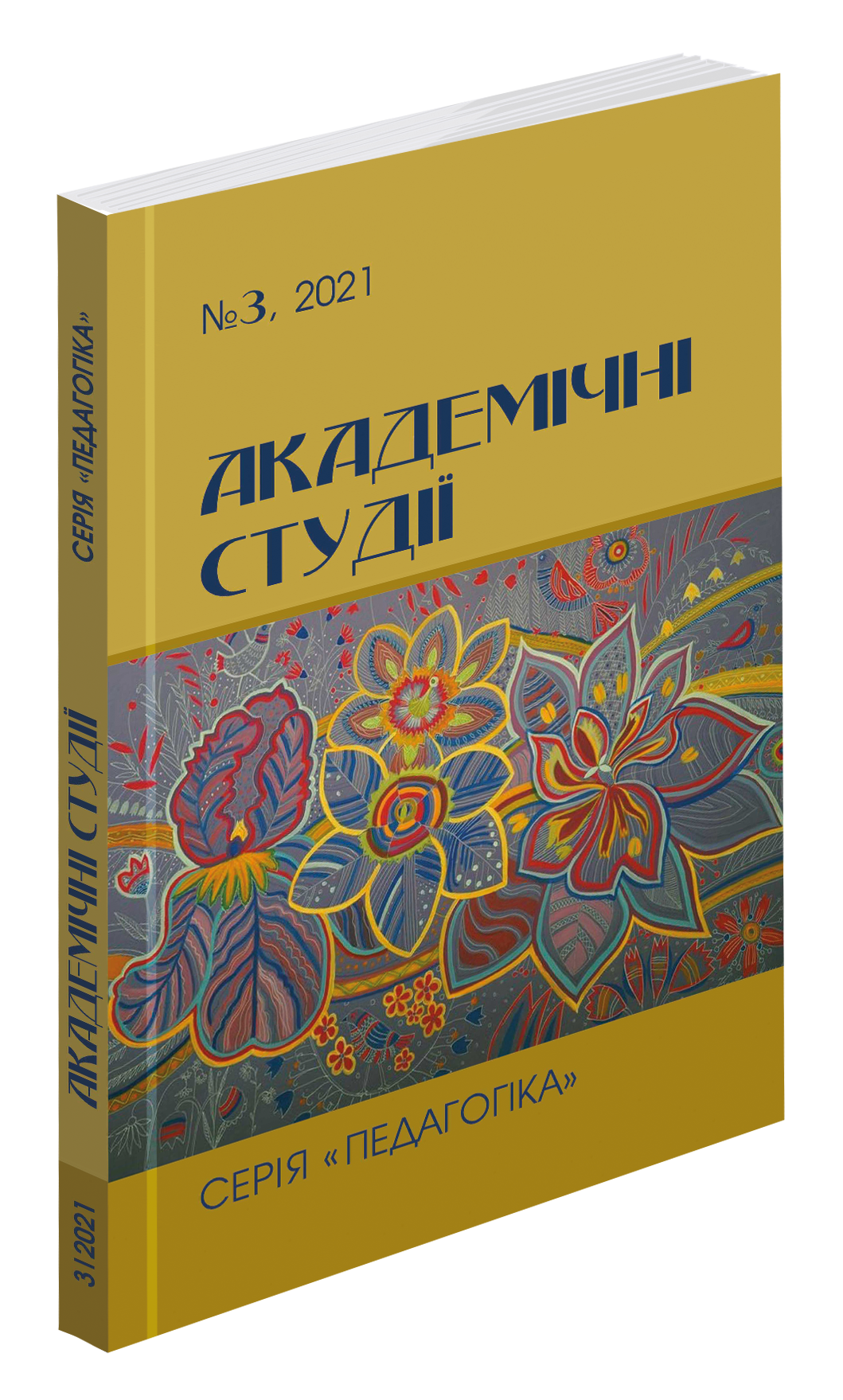Abstract
The article emphasizes that the formation of the competence of free command in the state language depends on the level of development of speech activities and a meaningful attitude to language concepts and phenomena. It is determined that the study of language by junior pupils as a holistic phenomenon requires a comprehensive approach to learning a word (phonetic, orthoepic, lexical, morphological, word-formational, syntactic, stylistic, spelling) through a comprehensive analysis of the text. It is noted that the effectiveness of the assimilation of the most linguistic concepts by younger pupils depends on the well-chosen textual basis, the analysis of this content awakens the pupils’ cognitive interest, promotes the manifestation of positive emotions. Here it is given the examples of such text bases as: tongue twisters, pure speech patterns, ritual calls, counters, proverbs, sayings, riddles. The features that give preference to the texts of the early folklore, in particular, conciseness, small volume, easiness of pupils’ memorization, emotional saturation are outlined. It is studied the methods of using texts of early folklore genres in the process of assimilation of language concepts and phenomena by junior pupils and it is proved the efficiency of application of early folklore genres in the development of speech-creative abilities and skills and the enrichment of emotional-sensory experience. It is determined that riddles, proverbs, tongue twisters contribute the elements of a game to the educational process, which is psychologically justified in the education of junior pupils. The practice on tongue twisters colloquialisms, pure speech patterns helps pupils to assimilate phonetic and graphic systems successfully. Invocations are effective when pupils master the language concept of “Address”. The use of proverbs is effective when pupils study the phenomenon of antonyms. Practicing with the interpretation of a proverb is a technique that contributes to the formation of pupils’ composion-writing skills. It is determined the effectiveness of the use of riddles while the study of the phenomenon of synonymy by younger pupils and in the process of forming the skills to build descriptive texts. It is demonstrated that the techniques of work with preparatory, training and final exercises tended for the study of language concepts and phenomena, the text material of which is early folklore genres. It is proved that the use of texts of early folklore genres is a method of encouraging the understanding of linguistic phenomena and concepts, which promotes the formation of activity in learning, the formation of a positive emotional basis in educational activities.
References
Дорошенко С. І., Вашуленко М. С., Мельничайко О. І. Методика викладання української мови : навчальний посібник. Київ : Вища шк., 1992. 398 с.
Коваль Г. П., Деркач Н. І., Наумчук М. М. Методика викладання української мови : навчальний посібник. Тернопіль : Астон, 2008. 287 с.
Коваль Т. Виховання молодших школярiв засобами української народної пiснi в умовах Нової української школи. Актуальні питання гуманітарних наук. Т. 3. № 27. С. 107–111.
Методика навчання української мови у початковій школі : навчально-методичний посібник / за наук. ред. Вашуленка М. С. Київ : Літера ЛТД, 2012. 364 с.
Савченко О. Я. Типова освітня програма 1–2 клас. URL: https://mon.gov.ua/storage/app/media/zagalna%20serednya/programy-1-4-klas/2019/ (дата звернення: 29.08.2021).
Сухомлинський В. О. Серце віддаю дітям. Вибрані твори : у 5 т. Київ : Рад. шк., 1977. Т 3. 668 с.

